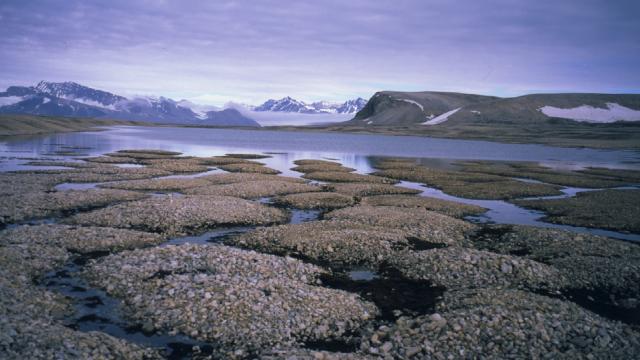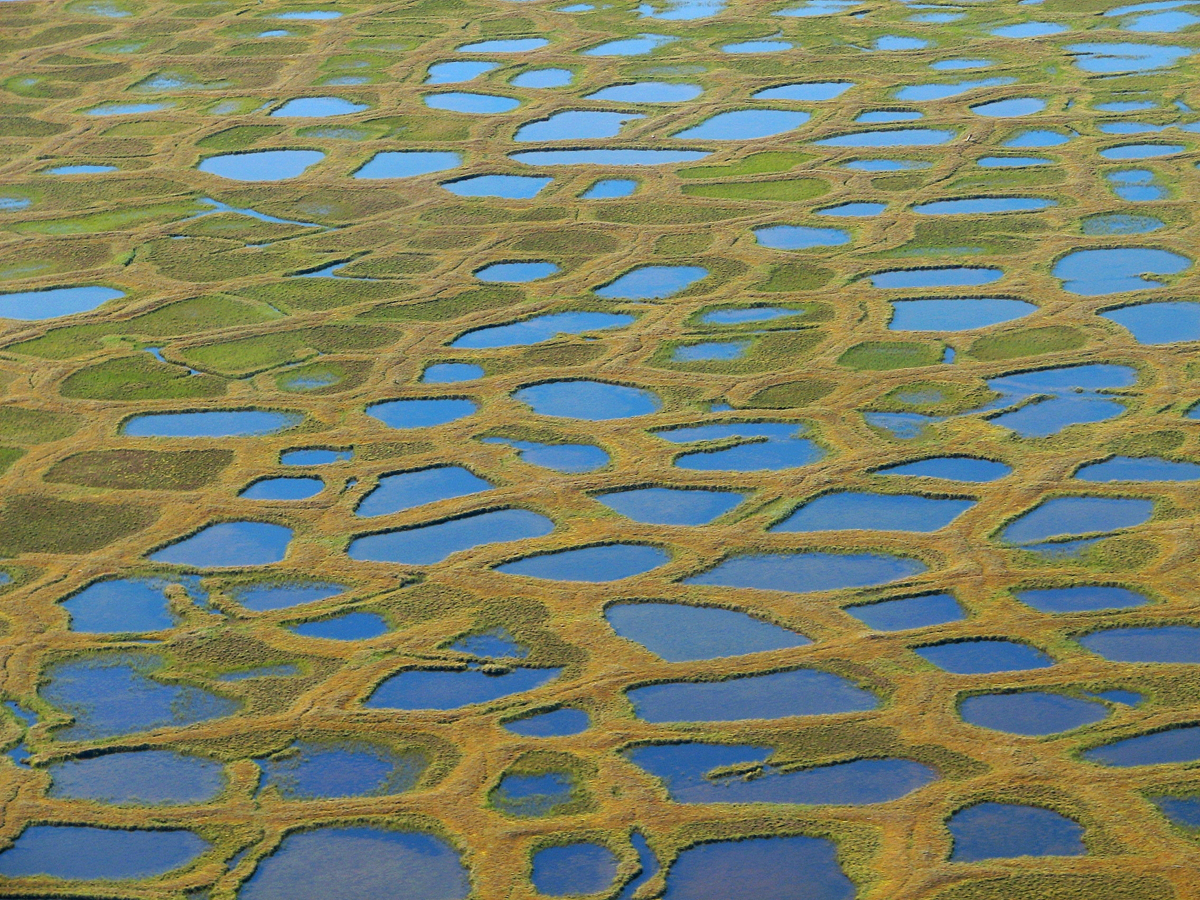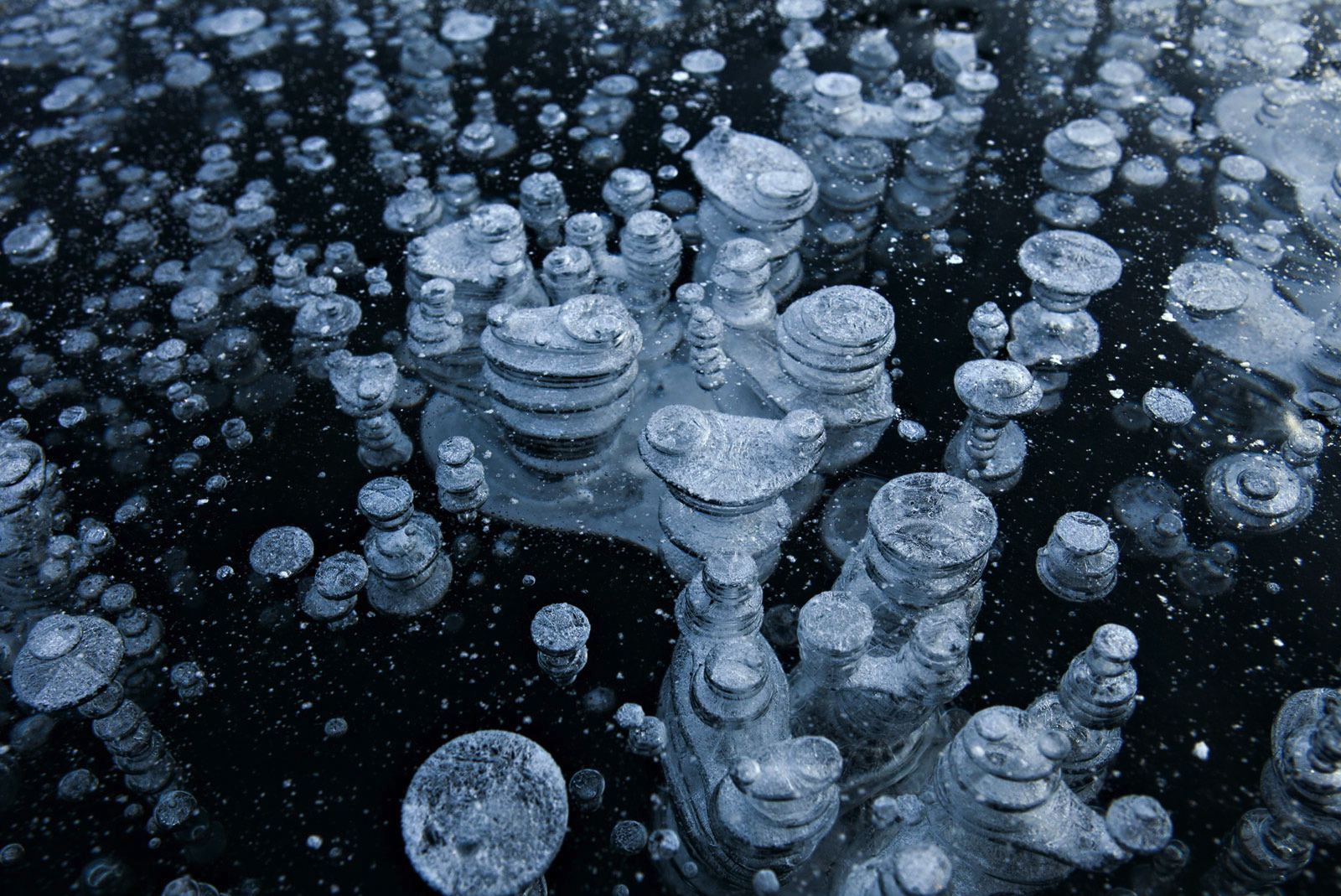
Last September, a NASA satellite image showed the Arctic sea ice had melted to its greatest extent ever. “Both scientists and indigenous peoples confirm that there is significant change across the region,” explains Finnish Arctic researcher Dr. Tero Mustonen.
“The situation is urgent, imminent and here.”
Dr. Mustonen has worked in the Finnish organization Snowchange Cooperative, which began in 2000 primarily as a network of indigenous and local communities, including from the Nordic Sámi, the Chukchi of Russia and Inuit of the Americas. The group advocates urgent international action on climate change through peer reviewed academic papers with input from the Arctic Council, the International Panel on Climate Change (IPCC) and other key international bodies.
From a global perspective, the crisis now being witnessed in the far North has worldwide ramifications, says Mustonen. “The Arctic has been called the 'Canary Bird of the World' in terms of climate change,” he says.
“The rapid melting of the Siberian and Canadian-Alaskan permafrost is probably the most significant event in the region. It means millions, if not billions of new methane tons will be released into the atmosphere, initiating an uncontrolled feedback mechanism."
“Additionally,," Mustonen says, "the possible melting [of the] East Siberian Arctic Shelf and its methane adds to this process.”
The Arctic is heating up twice as fast as other places, according to IPCC measurements. Eminent NASA climate scientist James Hansen defines the melting of the ice cap and the release of trapped methane as grave threats. He suggests they are “two tipping points that would have consequences that are practically irreversible on time scales of relevance to humanity.”
Climate Change Impacts Across the Arctic
In Alaska, the people of the village of Kivalina were recently labelled “America’s first climate change refugees” by the BBC. Located on the northeastern corner of the state, their village covers a small sand peninsular. The 400 Inuit inhabitants' homes will soon be washed away, as there is no longer sea ice around the shore to protected it from powerful autumn and winter storms.
They are not alone, as climate change is affecting all different communities within the Arctic Circle. Mustonen explains, “The warmer autumn causes ice rain to freeze on top of the lichen, which causes hardships to the reindeer herders.”
Mustonen highlights a key study by Maria Furberg, commissioned by Global Health Action, in which she interviewed herders from across Sweden. "Their experiences illustrated how there have been ‘major changes’ in nature and weather over the last 30 years," he says. "Autumns are longer, wetter and warmer; winters feel much warmer; whilst spring arrives much earlier and suddenly. The herders concurred: grazing areas are shrinking and migration over land is now harder. Also destructive corporate activity such as mining is increasing.”
Mustonen leads a village research project in Selkie, Eastern Finland, where a focus has been to analyze river water pollution from peat production, to inform water restoration and management plan efforts for the region. “Local knowledge of the Selkie residents plays a key role in the work,” he says.
In the Murmansk region of northwestern Russia, and on the Näätämö River, in Finland and Norway, the Snowchange Cooperative is working to sustain the Atlantic Salmon population in the face of changes to water temperatures. This includes organizing skill shares within the communities to manage fish numbers.
Quoting Siberian academic and colleague Vasilii Robbek, Mustonen defines a guiding principle of Snowchange: “We aim to enable indigenous people to maintain and thrive in their traditional cultures on the land, on their terms. Climate change and its impacts can be survived and food security maintained in rapid changes, if the core knowledge of ‘how to be’ with the land is maintained.
“They have their ‘own’ kind of knowledge and relationships with the lands, waters and air – therefore we should let them do their work, so that all of this – the world – can go on.”
This doesn’t mean rejecting outside technology, Mustonen adds, but instead blending it with indigenous knowledge. “Our direct assistance includes solar electrification of the reindeer camps in Siberia. We’ve established nomadic schools, looked to revitalize the language and also create land use and occupancy mapping.”
What Next for the Arctic?
This autumn, Snowchange will publish oral histories of the Sámi of Jokkmokk, from North Sweden. Earlier this year, a UN meeting of indigenous representatives in New York highlighted the way oral histories are pivotal in passing down knowledge and culture. “This knowledge is intact in [the] mother tongue. If we want to learn that, we have to learn indigenous language,” says Meenakshi Munda from an East Indian indigenous community.
"Also, our oral history is intact in mother tongue, so if we want to know our own history, we have to know our own culture, our own language.”
Oral histories have an additional significance for the cooperative' advocacy work on climate change. Mustonen emphasizes how:
"Other scientists say you need to publish a peer reviewed paper to be included within the IPCC, a colonial mindset that excludes the knowledge systems from indigenous communities,” he says. In contrast, by recording these histories, “Snowchange enables a means of dialogue that can be advocated in the IPCC process. This allows indigenous peoples’ ethics and morality to join the international climate change debate.”
Mustonen suggests the most crucial thing that those in global North can do is to start living in a way that, little by little, can help to slow climate change. “I belong to the school of thought where we need to return completely to the land. Indigenous knowledge holders say that the ‘Earth is faster now’. As the world needs more iPads, iPhones, cars, it seems to need to go faster and faster,” he says.
“Companies know that there are major deposits in the Arctic ‘in waiting,'" he adds, but "we should not repeat the mistakes of the past where we impose — whether it is Greenpeace or a mining company — on these communities.”
3 WAYS TO SHOW YOUR SUPPORT
- Log in to post comments














